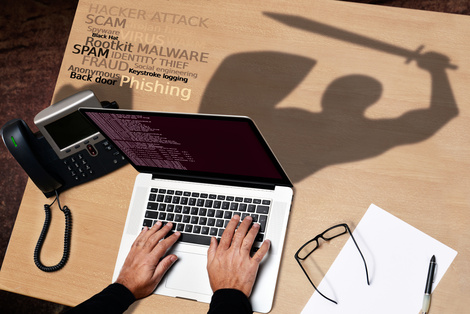Keeping your business safe doesn’t have to expensive
As it’s the first time the questions have been asked the results don’t show a trend, but their inclusion does show that cybercrime is being taken much more seriously.
Other sources show that online fraud is definitely growing. Experian’s research shows that ID fraud is soaring, driven by current account fraud, with 67 per cent of all current account fraud occurring as a result of ID fraud.
This is compared to only two years ago when it accounted for only 39 per cent of all current account fraud.
Over the same period, savings account frauds grew from 68 per cent to 92 per cent, and insurance claims from 11 per cent to 30 per cent – all as a result of ID theft-based fraud.
Businesses are targeted as they offer access to more money than the average consumer victim, and sometimes are not as fast at spotting frauds as a consumer who might spot unusual transactions or claims being made in their name.
Risks come in many forms, from ‘man-in-the-middle’ attacks, ‘friendly fraud’ and ID theft to money laundering and many more types.
There are professional services and expert advisors that businesses can turn to in order to help them get back on their feet after fraudsters have taken advantage – but it’s better to put in place the right procedures so the business can keeps hold of its assets without the bother.
Here are some free-to-implement cyber fraud tips in order to keep a business safer from the criminals preying on easy targets.
Protecting the business
Pay it forward: Give your customers advice to help them protect themselves and grow their own business and personal lives. When a business or person is defrauded everyone they are connected with becomes the next potential victim. Help them, help yourself.
Know your assets: Ensure you know what you have and how well it is currently protected. Some processes aren’t regularly looked at. It can be surprising to know just who has access to what… especially with your business data. Checking and planning cost nothing.
Protect your assets: The physical parts of the business have locks on the door and a secure place for petty cash. Online, the locks need to be upgraded proactively, and they come in the form of firewalls, password managers, age verification tools and online document verification services. When you’re starting from nothing it’s worth taking a free trial or free software solution to start off with. If you’re growing it can be worth upgrading to professional services.
Know your customers inside out: No one knows your customers like you do, so make sure to take care and notice how they behave and when their orders just aren’t usual – it might indicate that their account has been taken over.
Lay down ground rules on payments: Set the types of payments that you are prepared to accept, and the channels of doing business. Don’t accept business that you can’t trust – be confident in the solutions and services you use.
Treat your business identity like your own: Shred documents you don’t need, guard your corporate banking details, and look out online for your name being used in vain.
Protect customer data like gold: Secure the data you look after. Ensure you are compliant with regulations like PCI Data Security Standard (PCI DSS). Keep an eye out for new regulations and be ready well in advance to smooth the transition if needed.
Nick Mothershaw is a fraud expert at Experian.






